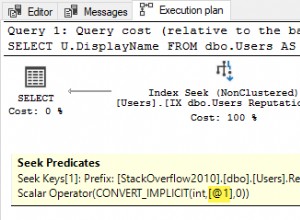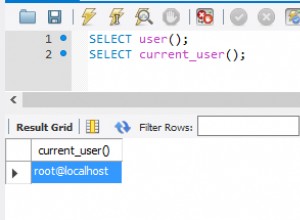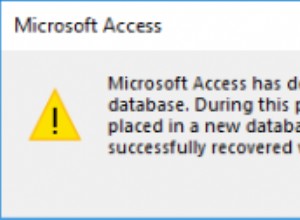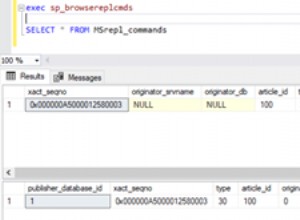Aqui está o que adaptei da resposta de @Lieven, incorporando comentários de aqui para melhor desempenho:
DROP PROCEDURE IF EXISTS tree_recover;
DELIMITER //
CREATE PROCEDURE tree_recover ()
MODIFIES SQL DATA
BEGIN
DECLARE currentId, currentParentId CHAR(36);
DECLARE currentLeft INT;
DECLARE startId INT DEFAULT 1;
# Determines the max size for MEMORY tables.
SET max_heap_table_size = 1024 * 1024 * 512;
START TRANSACTION;
# Temporary MEMORY table to do all the heavy lifting in,
# otherwise performance is simply abysmal.
CREATE TABLE `tmp_tree` (
`id` char(36) NOT NULL DEFAULT '',
`parent_id` char(36) DEFAULT NULL,
`lft` int(11) unsigned DEFAULT NULL,
`rght` int(11) unsigned DEFAULT NULL,
PRIMARY KEY (`id`),
INDEX USING HASH (`parent_id`),
INDEX USING HASH (`lft`),
INDEX USING HASH (`rght`)
) ENGINE = MEMORY
SELECT `id`,
`parent_id`,
`lft`,
`rght`
FROM `tree`;
# Leveling the playing field.
UPDATE `tmp_tree`
SET `lft` = NULL,
`rght` = NULL;
# Establishing starting numbers for all root elements.
WHILE EXISTS (SELECT * FROM `tmp_tree` WHERE `parent_id` IS NULL AND `lft` IS NULL AND `rght` IS NULL LIMIT 1) DO
UPDATE `tmp_tree`
SET `lft` = startId,
`rght` = startId + 1
WHERE `parent_id` IS NULL
AND `lft` IS NULL
AND `rght` IS NULL
LIMIT 1;
SET startId = startId + 2;
END WHILE;
# Switching the indexes for the lft/rght columns to B-Trees to speed up the next section, which uses range queries.
DROP INDEX `lft` ON `tmp_tree`;
DROP INDEX `rght` ON `tmp_tree`;
CREATE INDEX `lft` USING BTREE ON `tmp_tree` (`lft`);
CREATE INDEX `rght` USING BTREE ON `tmp_tree` (`rght`);
# Numbering all child elements
WHILE EXISTS (SELECT * FROM `tmp_tree` WHERE `lft` IS NULL LIMIT 1) DO
# Picking an unprocessed element which has a processed parent.
SELECT `tmp_tree`.`id`
INTO currentId
FROM `tmp_tree`
INNER JOIN `tmp_tree` AS `parents`
ON `tmp_tree`.`parent_id` = `parents`.`id`
WHERE `tmp_tree`.`lft` IS NULL
AND `parents`.`lft` IS NOT NULL
LIMIT 1;
# Finding the element's parent.
SELECT `parent_id`
INTO currentParentId
FROM `tmp_tree`
WHERE `id` = currentId;
# Finding the parent's lft value.
SELECT `lft`
INTO currentLeft
FROM `tmp_tree`
WHERE `id` = currentParentId;
# Shifting all elements to the right of the current element 2 to the right.
UPDATE `tmp_tree`
SET `rght` = `rght` + 2
WHERE `rght` > currentLeft;
UPDATE `tmp_tree`
SET `lft` = `lft` + 2
WHERE `lft` > currentLeft;
# Setting lft and rght values for current element.
UPDATE `tmp_tree`
SET `lft` = currentLeft + 1,
`rght` = currentLeft + 2
WHERE `id` = currentId;
END WHILE;
# Writing calculated values back to physical table.
UPDATE `tree`, `tmp_tree`
SET `tree`.`lft` = `tmp_tree`.`lft`,
`tree`.`rght` = `tmp_tree`.`rght`
WHERE `tree`.`id` = `tmp_tree`.`id`;
COMMIT;
DROP TABLE `tmp_tree`;
END//
DELIMITER ;




